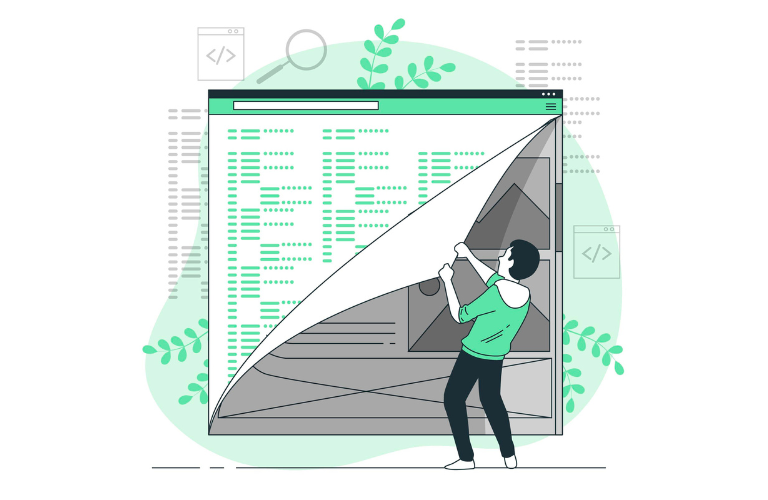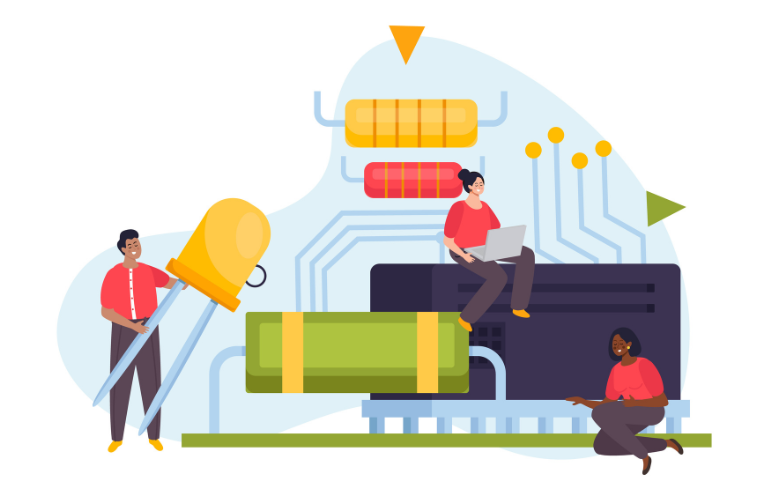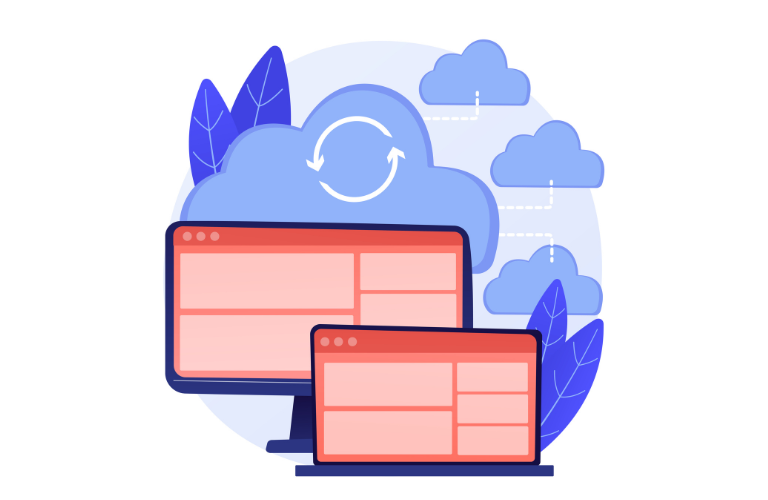Building scalable AI microservices with Laravel and Docker is a game-changer for developers aiming to create efficient, modular, and high-performance AI-driven applications. Combining Laravel’s robust PHP framework with Docker’s containerization technology offers a streamlined approach to developing, deploying, and scaling AI microservices.
This article explores why this duo is ideal, provides a step-by-step implementation example, and shares actionable tips to address common pain points like slow performance and complex deployments. Whether you’re a seasoned developer or new to AI, this guide simplifies the process while ensuring scalability and flexibility.
Table of Contents
Why Use Laravel and Docker for AI Microservices?
Laravel and Docker together create a powerful ecosystem for AI microservices. Laravel’s elegant syntax, built-in tools like Eloquent ORM, and extensive ecosystem make it perfect for rapid development. Docker, on the other hand, ensures consistency across environments, simplifies dependency management, and enables seamless scaling. Here’s why they’re a great fit for AI microservices with Laravel and Docker:
- Consistency Across Environments: Docker containers ensure your AI microservices run identically in development, testing, and production, reducing “it works on my machine” issues.
- Scalability: Docker’s container orchestration (e.g., with Kubernetes) allows you to scale individual microservices independently, optimizing resource usage for AI workloads.
- Rapid Development: Laravel’s Artisan CLI and pre-built packages speed up coding, letting you focus on AI logic rather than boilerplate code.
- Isolation: Docker isolates dependencies, preventing conflicts between AI libraries like TensorFlow or PyTorch and PHP-based services.
- Community and Ecosystem: Laravel’s vast community and Docker’s widespread adoption provide extensive resources, tutorials, and tools.
This combination addresses pain points like environment mismatches, slow deployment cycles, and scaling bottlenecks, making it ideal for AI-driven projects.
Understanding AI Microservices
AI microservices are small, independent services that handle specific AI tasks, such as natural language processing, image recognition, or predictive analytics. Unlike monolithic applications, microservices allow you to break down complex AI systems into manageable, scalable components. For example, one microservice might handle data preprocessing, while another runs a machine learning model.
Using AI microservices with Laravel and Docker ensures each service is lightweight, reusable, and easy to update without affecting the entire system. Laravel handles the API and business logic, while Docker containers manage the AI runtime environment, ensuring consistency and performance.
Setting Up the Environment
To get started, you need a development environment with Laravel and Docker. Below is a step-by-step guide to configure a basic AI microservice for a text classification task, integrating a Python-based AI model with a Laravel API.
Prerequisites
- PHP 8.1 or higher
- Composer
- Docker and Docker Compose
- Basic knowledge of Laravel and Python
- A machine learning model (e.g., a simple text classifier using scikit-learn)
Step 1: Initialize a Laravel Project
Create a new Laravel project using Composer:
composer create-project laravel/laravel ai-microservice
cd ai-microserviceThis sets up a fresh Laravel application. The ai-microservice directory will house your API logic.
Step 2: Configure Docker
Create a Dockerfile for the Laravel application and a docker-compose.yml to manage services. The setup includes a PHP container for Laravel and a Python container for the AI model.
Dockerfile:
FROM php:8.1-fpm
RUN apt-get update && apt-get install -y \
libpq-dev \
&& docker-php-ext-install pdo pdo_pgsql
RUN curl -sS https://getcomposer.org/installer | php -- --install-dir=/usr/local/bin --filename=composer
WORKDIR /var/www
COPY . /var/www
RUN composer install
CMD php artisan serve --host=0.0.0.0 --port=8000
EXPOSE 8000docker-compose.yml:
version: '3'
services:
laravel:
build:
context: .
dockerfile: Dockerfile
ports:
- "8000:8000"
volumes:
- .:/var/www
depends_on:
- python-ai
python-ai:
image: python:3.9
volumes:
- ./ai:/app
working_dir: /app
command: python app.pyThe docker-compose.yml defines two services:
- laravel: Runs the PHP application.
- python-ai: Runs the Python-based AI model.
Step 3: Create a Simple AI Model
In the ai directory, create a Python script for a text classification model using scikit-learn. This example classifies text as positive or negative.
app.py:
from flask import Flask, request, jsonify
from sklearn.feature_extraction.text import TfidfVectorizer
from sklearn.linear_model import LogisticRegression
import pickle
app = Flask(__name__)
# Sample training data
texts = ["I love this product", "This is terrible", "Amazing service", "Very disappointing"]
labels = [1, 0, 1, 0]
vectorizer = TfidfVectorizer()
X = vectorizer.fit_transform(texts)
model = LogisticRegression().fit(X, labels)
# Save model for reuse
with open('model.pkl', 'wb') as f:
pickle.dump((vectorizer, model), f)
@app.route('/predict', methods=['POST'])
def predict():
data = request.json
text = data['text']
with open('model.pkl', 'rb') as f:
vectorizer, model = pickle.load(f)
X = vectorizer.transform([text])
prediction = model.predict(X)[0]
return jsonify({'prediction': 'positive' if prediction == 1 else 'negative'})
if __name__ == '__main__':
app.run(host='0.0.0.0', port=5000)This script creates a Flask API that exposes a /predict endpoint for text classification.
Step 4: Connect Laravel to the AI Service
In Laravel, create a route and controller to communicate with the Python AI service.
routes/api.php:
<?php
use App\Http\Controllers\AIController;
use Illuminate\Support\Facades\Route;
Route::post('/predict', [AIController::class, 'predict']);app/Http/Controllers/AIController.php:
<?php
namespace App\Http\Controllers;
use Illuminate\Http\Request;
use Illuminate\Support\Facades\Http;
class AIController extends Controller
{
public function predict(Request $request)
{
$text = $request->input('text');
$response = Http::post('http://python-ai:5000/predict', [
'text' => $text,
]);
return $response->json();
}
}Step 5: Run the Application
Start the services using Docker Compose:
docker-compose up --buildTest the API by sending a POST request to http://localhost:8000/api/predict with a JSON payload like {“text”: “I love this product”}. The response will be {“prediction”: “positive”}.
Optimizing for Scalability
To make AI microservices with Laravel and Docker truly scalable, consider these strategies:
- Load Balancing: Use tools like Nginx or Traefik to distribute traffic across multiple containers.
- Orchestration: Deploy with Kubernetes for auto-scaling and self-healing.
- Caching: Implement Laravel’s caching (e.g., Redis) to reduce AI model inference time.
- Monitoring: Use tools like Prometheus and Grafana to track performance metrics.
- Asynchronous Processing: Use Laravel’s queues to handle heavy AI computations in the background.
These techniques address slow performance and ensure your microservices can handle increased traffic.
Time-Saving Shortcuts
- Laravel Sail: Use Laravel Sail, a built-in Docker environment, to skip manual Docker setup.
- Pre-trained Models: Leverage pre-trained AI models from Hugging Face to avoid training from scratch.
- Docker Hub: Pull pre-built Docker images for PHP and Python to speed up configuration.
- Artisan Commands: Create custom Artisan commands for repetitive tasks like model deployment.
Common Pain Points and Solutions
- Slow Performance: Optimize AI models with quantization or use GPU-enabled Docker images for faster inference.
- Dependency Conflicts: Docker’s isolation ensures Python and PHP dependencies don’t clash.
- Complex Deployments: Automate deployments with CI/CD pipelines using GitHub Actions or Jenkins.
Real-World Use Case
Imagine building a chatbot platform where one microservice handles intent recognition, another processes user input, and a third generates responses. Using AI microservices with Laravel and Docker, you can deploy each service independently, scale the intent recognition service during peak usage, and update the response generator without downtime. This modularity improves maintainability and performance.
FAQs
1. What are AI microservices with Laravel and Docker?
AI microservices with Laravel and Docker refer to small, independent services built using Laravel (a PHP framework) for API and business logic, and Docker for containerizing AI models and environments. Laravel handles the application’s backend, while Docker ensures consistent, scalable deployment of AI components, like machine learning models, across different environments.
2. Why should I use Laravel and Docker for AI microservices?
Using AI microservices with Laravel and Docker combines Laravel’s rapid development features (e.g., Artisan CLI, Eloquent ORM) with Docker’s ability to isolate dependencies and scale services. This duo ensures consistent environments, simplifies scaling, and reduces conflicts between AI libraries (e.g., TensorFlow) and PHP, making development and deployment faster and more reliable.
3. How do I set up AI microservices with Laravel and Docker?
To set up AI microservices with Laravel and Docker, install PHP, Composer, and Docker. Create a Laravel project with composer create-project laravel/laravel ai-microservice. Define a Dockerfile for the Laravel app and a docker-compose.yml to manage services, including a Python container for AI models. Connect the services via API calls, then run docker-compose up to launch.
4. Can I scale AI microservices with Laravel and Docker easily?
Yes, AI microservices with Laravel and Docker are highly scalable. Docker supports container orchestration with tools like Kubernetes, allowing you to scale individual services independently. Laravel’s queuing system (e.g., with Redis) and load balancing with Nginx further optimize performance, ensuring your AI microservices handle increased traffic efficiently.
5. What are common challenges with AI microservices using Laravel and Docker?
Common challenges include slow AI model performance, dependency conflicts, and complex deployments. AI microservices with Laravel and Docker address these by using Docker to isolate dependencies, optimizing models with techniques like quantization, and automating deployments with CI/CD pipelines (e.g., GitHub Actions) to streamline updates and scaling.
6. Are there time-saving tools for building AI microservices with Laravel and Docker?
Yes, tools like Laravel Sail (a Docker-based environment) simplify setup, while pre-trained models from Hugging Face reduce AI development time. Using Docker Hub’s pre-built images for PHP and Python, along with Laravel’s Artisan commands for automation, can significantly speed up building AI microservices with Laravel and Docker.




